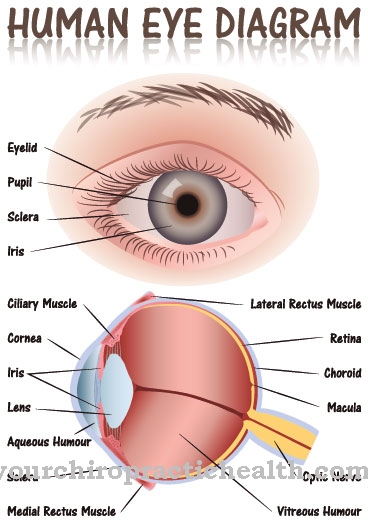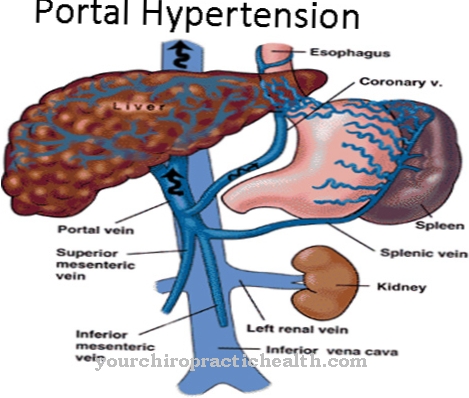According to the Organization for Economic Cooperation and Development, in industrial countries like Germany and Europe in general, the balance between work and private life has steadily deteriorated in recent years. A lot of overtime, a high pressure to succeed, constant availability by e-mail and phone using smartphones and the ability to continue working at home via the Internet have a negative effect on switching off after work. Rather, there are numerous workers who cannot rest day and night because they cannot clear their heads and continue to worry about work they cannot do or problems at work. This has a correspondingly negative effect on the psyche, listlessness, the loss of social contacts and even burn-out can be the result, for example.
What is work-life balance?

The term work-life balance comes from English and is made up of the words work (= work), life (= life) and balance (= balance).
The work-life balance describes a state in which working life and professional life should be in harmony. This is at the same time the goal of work-life balance: To create a situation in which life is balanced, the areas of work and private life can be seen separately from one another and thus a satisfactory situation can be created for each individual worker.
The work-family conflict as the basis
The work-family conflict primarily describes the feeling of stress that arises due to the incompatibility of work and family life. While some are already faced with a difficult task to manage when they want to reconcile their job with their own private life and living out hobbies, this is even more difficult when the worker has his own family. Especially in times when households with double earners are the order of the day, everyday family life can quickly suffer or fall by the wayside.
In light of this potential issue, some couples think twice about whether they really want to start a family or keep focusing on their careers. If there is a family, parents face various problems. This starts with finding suitable childcare for the time both parents are working, continues with financial care and the worries that come with it, and ends with the possibility that a child's development could be negatively affected if the parents give up Failure to achieve a balance between work and family. If a mother or father cannot switch off after work and give their children the attention they need, a child may not feel as comfortable as they should. Possible overtime and the associated absence of parents also have negative effects.
Ultimately, it is particularly important with regard to a sensible family life that parents create a balance between work and private life, which in reality is easier said than done. Families are no longer left entirely to their own devices with this problem. Many companies offer measures to bring the work-life balance into harmony - a company ultimately also benefits when employees feel comfortable both professionally and privately.
Goals in work and private life
Everyone has specific goals that they want to achieve in their life. Some of them are those that have been set for the distant future, others are aimed at significantly increasing the quality of life and ensuring a satisfactory life in the long term. Setting an objective is also important in order to provide yourself with guidance. Both in terms of your career - for example a desired promotion - and in your private life, setting goals is a good way to set yourself an incentive, but also a limit.
The private values
When it comes to private values, family, friends, hobbies and relaxation come first. In order to achieve these goals, it is important to switch off from work. But this is problematic for many, because money is usually required to achieve the goals and money comes from work, so that some people think that it is hardly possible to separate work and private life. Nevertheless, goals for your private life should first be set, possibly even with a time limit, which should not be set too tightly in order not to run the risk of putting yourself under too much pressure.
family
Sooner or later almost everyone thinks of starting a family, of becoming "settled", so to speak. It starts with longing for a happy and functioning partnership. A partner with whom a lot of time can be spent and who may at some point be ready for the next step - for example, marriage.
After starting a family, family planning usually begins. The first child of your own is born and from this point on the focus is on offering the child a secure future. This means ensuring a secure place of residence in the form of building or buying a house, investing financial security with savings accounts or shares, setting a good example for the child, providing assistance and promoting their talents.
Furthermore, family goals often include securing their own parents in old age: Either to provide good care or to be able to take them into their own home. The most important thing in family terms is to spend a lot of time together.
Self-development
In addition to the family, there must also be time for yourself in order to be satisfied. That means setting goals in the hobby area. For example, wanting to achieve a certain sporting performance or registering for a club or a course in the near future.
Being able to make time for friends is also an important goal. Social contacts are crucial in order to be able to create a personal balance. Joint activities such as the cinema, disco, bar or eating out should therefore not be neglected.
recreation
Everyone needs a break from time to time. This should definitely be indulged in in order to be fully efficient again afterwards. Here, set goals can be, for example, a long-dreamed-up cruise, a summer vacation abroad, but above all constant relaxation that takes place again and again. Being able to treat yourself to a few hours a week, taking a long bath, going to the tanning salon or being able to lie in the garden with a good book are goals that can be easily achieved, but are also very essential.
The professional goals
If you have no goals in your job, you will usually not be satisfied and will not be able to achieve exceptional performance. An employee then simply lives into the day and could soon be frustrated with their daily work.
Career advancement
A big goal in professional terms is promotion. This depends on several factors and in some cases it is not quite as quick and easy to achieve. Nevertheless, it is worth keeping this goal in mind. It serves as an incentive and gives certainty that the current position does not have to be carried out for the rest of the working life. If this hard-earned goal is achieved, the greater the motivation to set further goals for career advancement.
Safe salary
Money is vital in today's society. Although a well-functioning social system ensures that people do not have to live completely without money and that the state pays for basic needs in case of doubt, hardly anyone can be satisfied with that. Many therefore set themselves the highest professional goal of achieving a secure and regular income at all.
With this income, various other worries are eliminated and at this point private and professional life meet again: Those who receive a secure salary can finance the most important needs of their family and treat themselves to one or the other to improve the quality of life.
Measures in companies

In order to offer employees an opportunity to find a healthy balance between work and private life, various measures are now offered in many companies.
The reasons for this are obvious: when employees have found a healthy balance between work and leisure, they are more balanced at work. This means, on the one hand, that they do their work with more motivation and, on the other hand - and this is the most important thing for employers - they can do their best. However, if the employee is stressed at work, this usually affects his private life as well. He is listless, irritable and may let his private environment feel this. If private life then no longer runs smoothly, this in turn also affects work and the employee finds himself in a vicious circle.
In the long run, this means that the employee is not only unmotivated, but in the worst case falls ill from this stressful situation. Depression or burnout can result. In order to prevent this, the employer can also take action by offering appropriate measures for a good work-life balance and thereby creating a good working atmosphere.
Such measures also benefit the reputation of the employer, as he is seen as an attractive employer and can therefore better bind his employees to the company, but also has a greater choice in the competition for a vacant position.
Fit in the workplace
Not only motivation and a good mood are important at work, but also your own fitness. Those who are fit have various advantages:
- Increased resistance to diseases
- The annual flu wave is a good example of this. Those who are fit get sick less often and can be resistant to the impending cold. If this applies to a large part of the workforce, the employee can expect a significantly lower rate of absenteeism due to illness.
- More energy
- Fit workers are more resilient because they have more energy. They are also not so easily distracted from work as those who do not have a certain level of fitness and the associated endurance.
However, a certain level of fitness can also influence other areas, such as your own self-confidence, a better attitude towards life and the ability to work in a team.
This required fitness does not have to come from the employee alone by doing sports in his spare time. Companies can also support their employees by offering sports and wellness offers.
- It starts with a healthy diet. Instead of the usual canteen food with french fries and the like, you can switch to a health-conscious diet. If there is no canteen, it is advisable to set up a snack box or a machine with appropriately healthy food.
- It is also a good idea to promote physical activity, for example by forming a company team - which also promotes a sense of togetherness - or by paying for membership in a fitness center in whole or in part by the company.
- The use of the right furniture is also not to be underestimated, because the right office chairs, desks or monitors can already bring about a significant improvement in working conditions. A wide variety of directives, such as the VDU Regulation, which is explained in more detail at the following address, serve as a yardstick. Above all, ergonomics is a crucial aspect, as it can also be used to better contain back pain or concentration problems - at the moment, however, the implementation of these and other measures in German offices is still rare.
- Seminars that may be part of the employer's leisure time, but are of great benefit, such as a smoking cessation seminar, are also popular. Both employees and employers benefit from this: The employee can get rid of an annoying vice, the employer doesn't have to worry about smoking breaks.
Flexibility in time and place
A very important measure on the way to a satisfactory job is the regulation of working hours. Employees with families in particular often have problems balancing work and family time - which in turn turns into stress. The employer can provide a remedy here in the form of various working time models: flexitime, part-time, shift work or even job sharing - two or three part-time employees share a job and can regulate their working hours among themselves - are good offers here.
Above all, it is important that the employer trusts his employee, but the employee also appreciates this trust and, despite flexitime, for example, properly fulfills his obligations.
Another vote of confidence on the part of the employer is the flexibility in terms of the place of work. Some activities could be done from home. A possible measure here is that the employee does not have to come to the office every day, but can also work at home in the home office for a few days.
"Holistic management" of a company
It used to be like this, and it is still common in many companies today: mechanical guidance. In the meantime, however, it has gone out of fashion and many companies recognize that holistic leadership is much more effective.
In mechanical leadership, the employees are led to a specific goal by a manager or one is shown to them.
With holistic management, on the other hand, it is important that actions and reactions of the sub-areas (e.g. warehouse, logistics, accounting, etc.) flow into decisions and help to achieve the desired goals. Communication is an important means here, which on the one hand helps the organization of the company in its management and on the other hand promotes self-organization.
The employees are accordingly still subordinate to a manager, but they actively contribute to the business process based on their opinions and suggestions and are therefore part of the decision-making process. In this way, the employees have the chance to get involved effectively in what is happening and see themselves as a stronger and more important part in big decisions.
Flexible parental leave
Both mothers and fathers have the right to parental leave from the birth of the child. One or both parents can take up to three years of parental leave. The most important aspects of parental leave are legally regulated, but this does not mean that these regulations are also the most favorable for parents.
An employer who cares about the well-being of his employee can approach his employee at this point and offer him flexible parental leave. This means, for example, that the father or mother does not necessarily have to take the three years of parental leave in one go after the birth, but rather the last 12 months only during the first year of school. At this point, however, the legislation has already taken a step towards the parents: From July 1, 2015, the last 24 months will be available flexibly and approval from the employer is no longer required. The subject is taken up again here in more detail.
Return to work after the end of parental leave is also regulated by law, but not all parents actually want to spend all of their parental leave at home. Here the employer can again accommodate his employee and offer him a part-time position with, for example, 15 hours a week.
Practical examples
It is clear that a good work-life balance has advantages for both the employer and the employee. But there are still companies that do not seem to care that their employees are balanced and satisfied, including large companies. Others, however, have recognized the importance of a healthy work-life balance and offer appropriate measures. The following examples provide an insight into the various measures and their implementation:
| Deutsche Bahn | According to Deutsche Bahn, it attaches great importance to the agreement between work and family. For this reason, it offers its employees flexible working hours and teleworking. The company also offers a "family service" which takes care of the placement of childcare offers nationwide and has set up its own company kindergarten in Duisburg. |
| Federal agency for work | The Federal Employment Agency has also determined how important the work-life balance is for employees and, for example, offered the workshop "Work-life balance - easier said than done" for employed people, job seekers and those returning to work. Furthermore, the BA has developed a three-phase concept for returning to work after parental leave. Corresponding brochures on the subject are also available from the Federal Employment Agency. |
| Tchibo GmbH | Tchibo GmbH sees itself as a family business and places great value on work-life balance. Corresponding health promotions such as ergonomic workplaces, a company-owned leisure center and a range of balanced meals in the staff restaurant are available. Daycare places are available in various facilities, a nationwide family service that takes care of worries and problems and even a separate Kidz Playground holiday program is offered in Hamburg. The company is open to part-time, home office and job sharing. |
The Federal Ministry for Families, Seniors, Women and Youth has put together further practical examples for a successful implementation of the work-life balance in a guide.
Impending dangers
If there is no work-life balance, the employee faces various dangers as described above. Imbalance, lack of motivation and listlessness are the first signs that over time can develop into more profound psychological problems such as insomnia, depression and burnout.
Burnout syndrome
Burnout syndrome, in particular, is a serious problem. The affected person feels completely burned out and emotionally exhausted. This state of affairs is often not easy to get out of the world with a short recovery, many sufferers sink into a swamp of depression and inner emptiness, so that it can even lead to suicidal thoughts.
You can find your medication here
➔ Medicines for relaxation and nerve strengtheningThe OECD Better-Life Index - Which countries have a good work-life balance?
The OECD Better-Life Index updates its work-life balance ranking on a daily basis. Although the statistics are not representative, as visitors to the site are solely responsible for submitting their data, there is a clear trend in some countries.
At the top of the list of countries with a good work-life balance is Denmark. The OECD average of hours spent on leisure activities, eating and sleeping is 15 hours. In Denmark, however, it is 16.1 hours.
In second place is Spain with 16 hours, followed by Belgium with 15.7 hours. Germany is in seventh place with 15.3 hours and is still above average. Incidentally, Mexico brings up the rear, and Turkey far behind.











.jpg)










.jpg)



